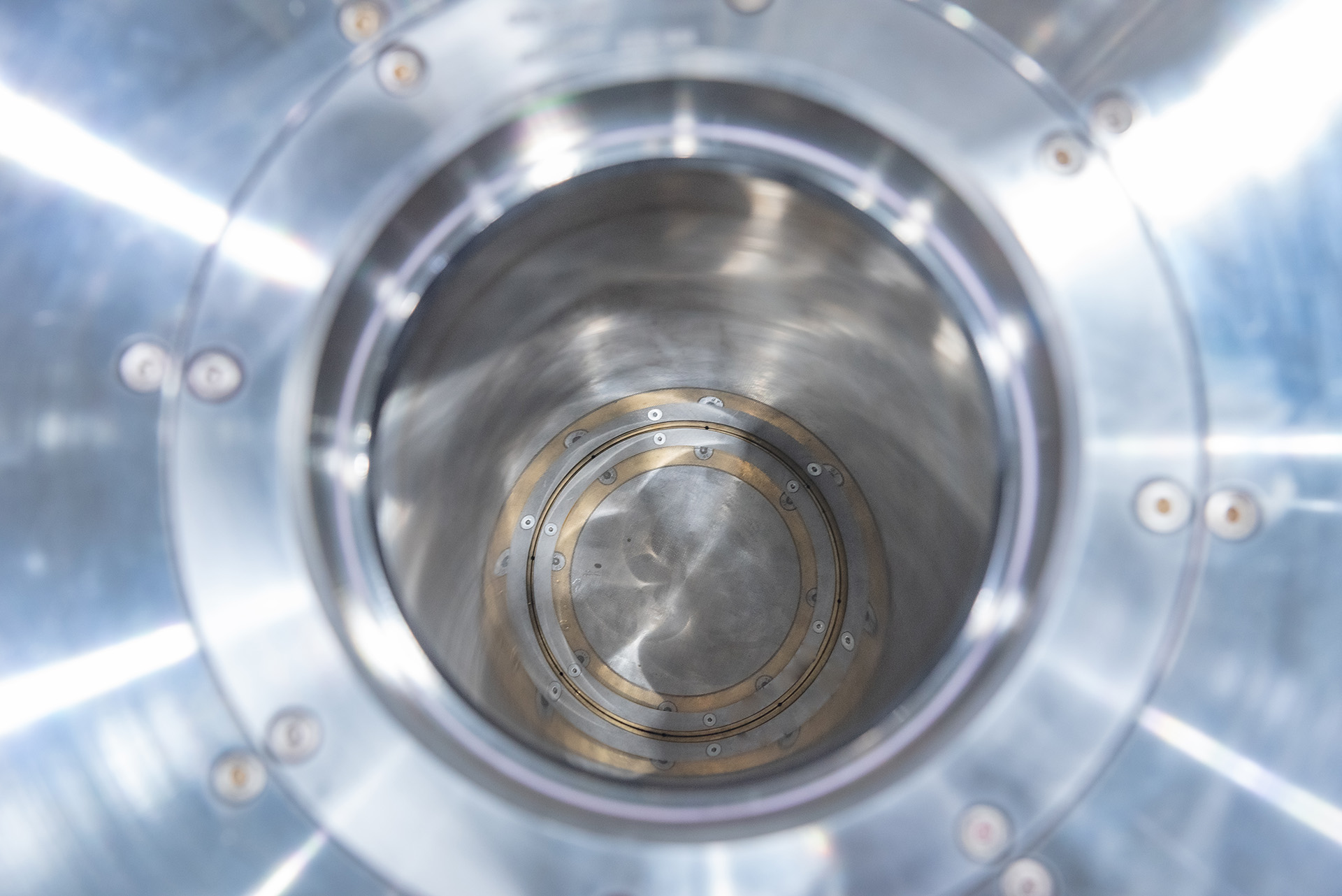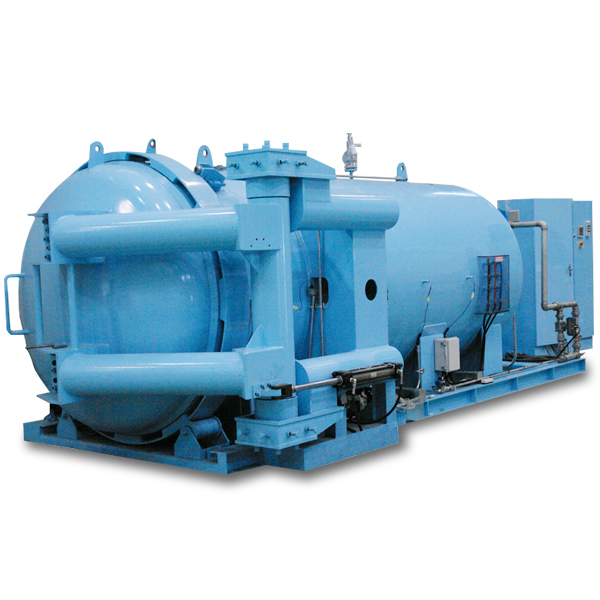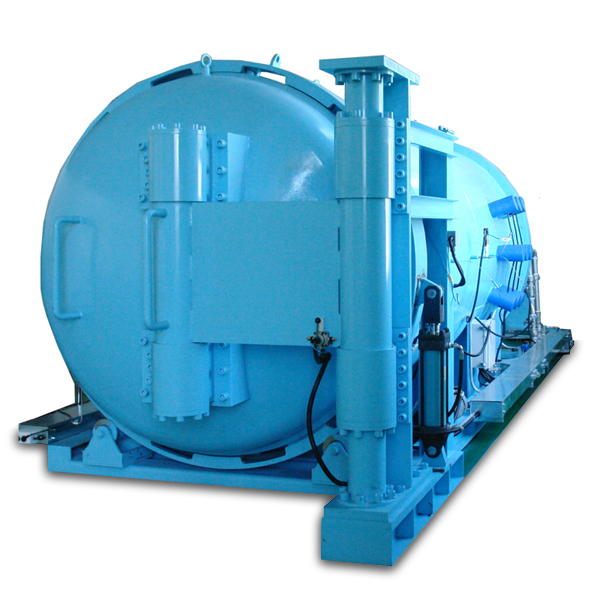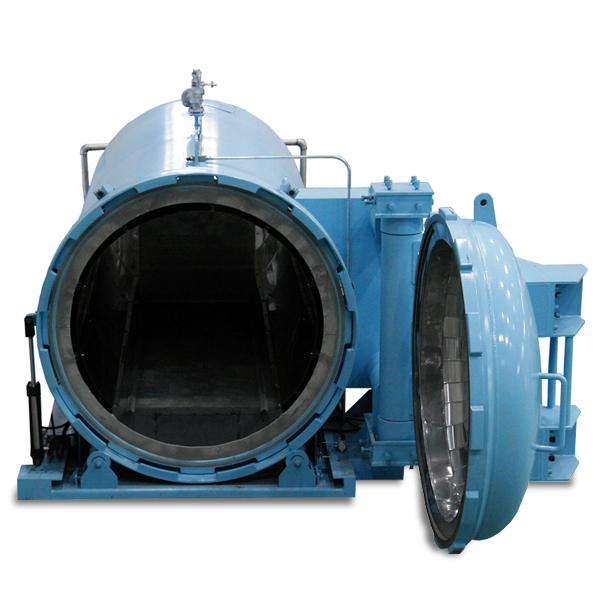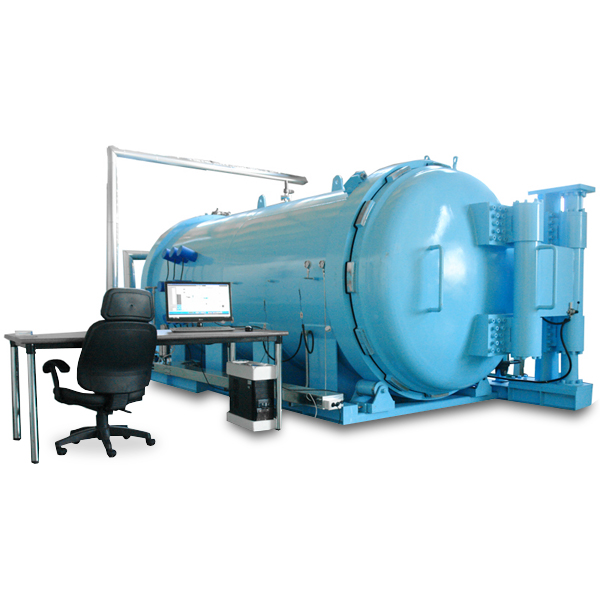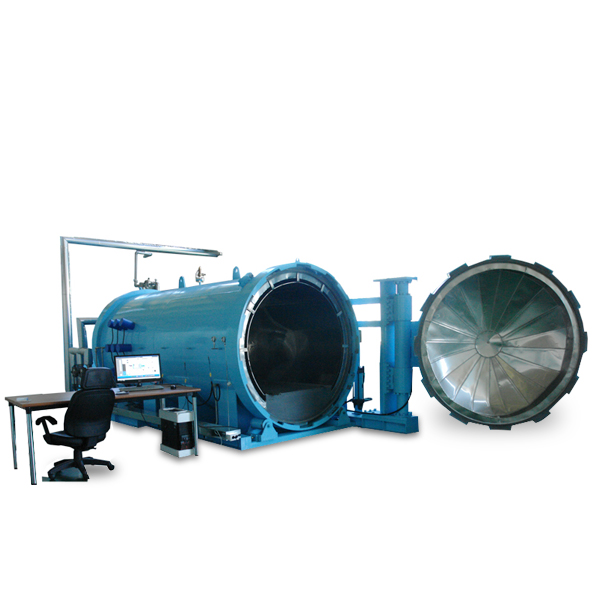Pressure Curing Oven
Pressure Curing Oven for glass bonding (GA series)
Product summary Information
Equipment that allows homogenization and densification by applying pressure in the same direction while maintaining a constant temperature state
Key Features
Simple design | User Convenience | ultimate safety
Application
Applicable to heat treatment of glass surfaces such as tempered glass and pair glass , and to the process of bonding glass
Custom orders are also possible for conditions other than the standard specifications, so please consult with your sales representative.
High Pressure Vessel
Designed for safety
– Designed based on ASME
– Domestic industrial safety and gas safety inspection carried out
– China SEL certification available
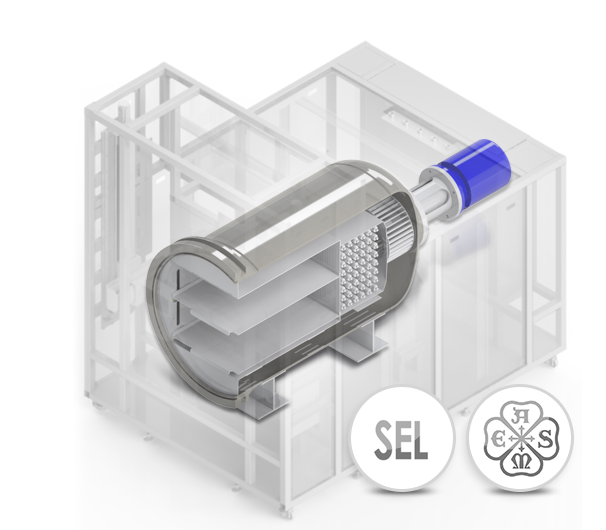
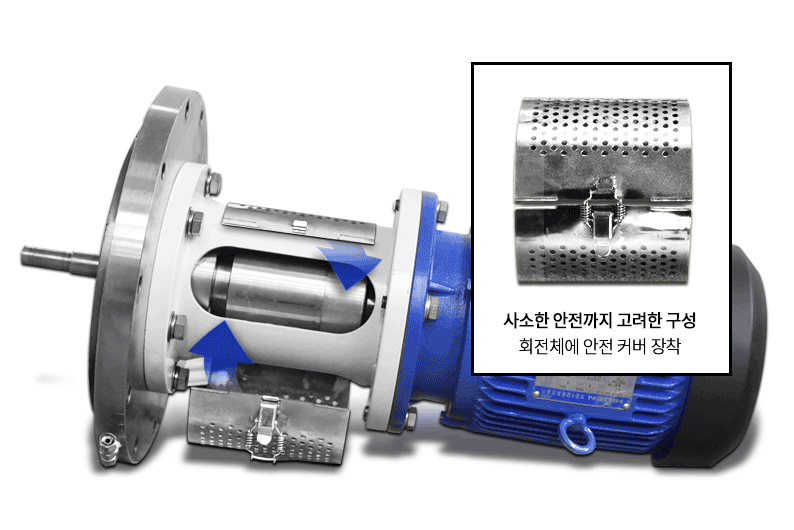
Fan System
Configuration specialized for cleanroom
– Dust-free system with integrated drive unit
– Equipped with a safety cover for the rotating part
* Material : Stainless steel
Heating System
Easy to attach and detach
– 100% guide to best air flow conditions
– Design to minimize loss
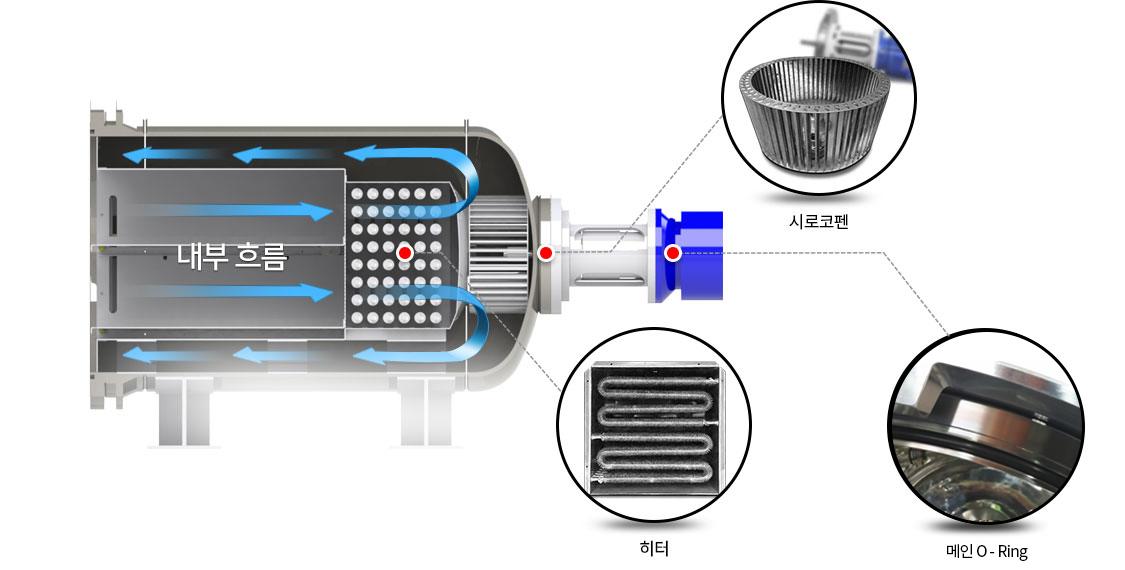
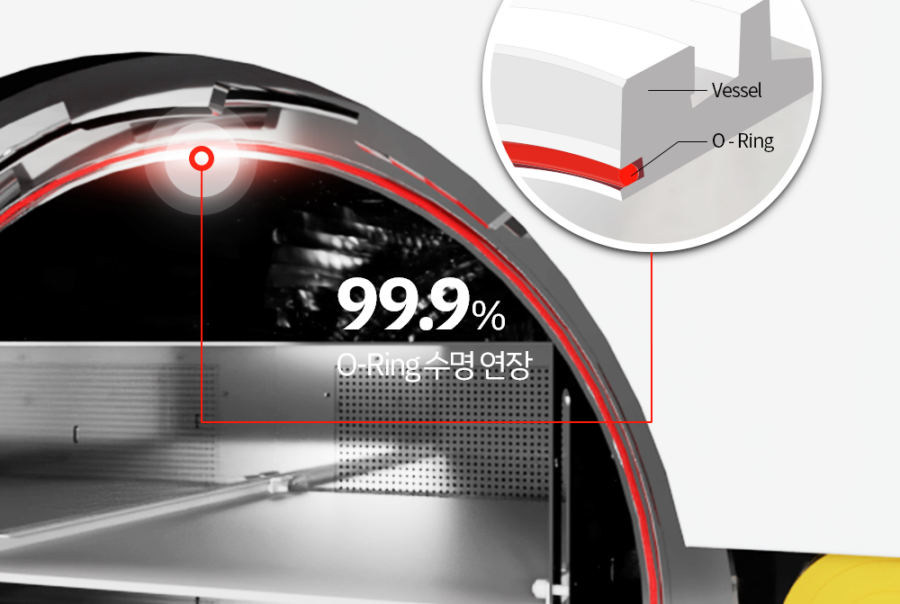
Main O-ring
O-ring Lifetime extension
Selecting the right material for the temperature
No Foreign matter
PCO – GA Series
Temperature/Pressure TEST DATA
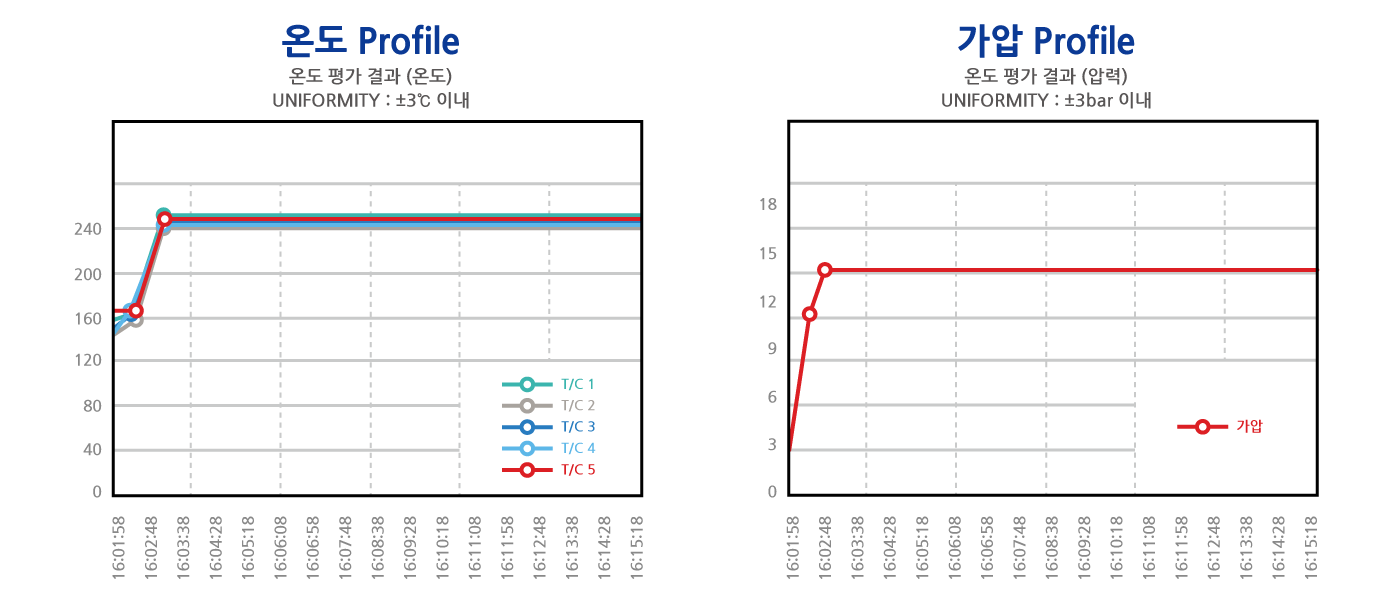
V.F.T(Valves, Fittings & Tubing)
Perfect pipe treatment with over 20 years of experience
Selection of materials that are not problematic for high pressure use, flow chart at a glance
Main control panel
Easy to operate
and High performance control panel
| Series | GA6 | GA9 | GA12 | GA15 | GA20 |
|---|---|---|---|---|---|
| Inside diameter (㎜) | 600 | 900 | 1,200 | 1,500 | 2,000 |
| Inside depth (㎜) | 600 / 1,000 | 1,000 / 1,500 | 1,200 / 1,500 | 1,500 / 2,000 | 2,000 / 3,000 |
| Pressure (bar) | 9 / 20 | ||||
| Temperature (℃) | 150 | ||||
| Material | SUS304 | ||||
How to select Order-made Type
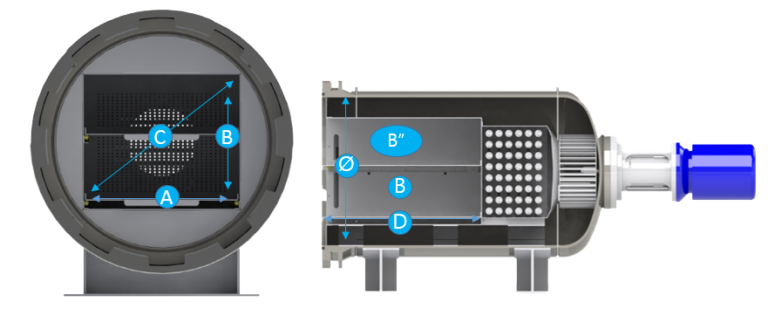
| Type | Inside diameter | Inside depth | Pressure | Temperature (℃) |
|---|---|---|---|---|
| A / B / B" (select) | Ø (calculate) | C (select) | Maximum Value to use (bar) | Maximum Value to use (℃) |
Caution
- Select the width of the first tray carriage (A selection criteria)
- Select the 2nd tray/carriage height and number of stages (B/B” selection criteria)
- When the above two A and B are selected, the way to find the inside diameter (Ø) is to find C since you know A and B, which are A(base), B(height) and C(hypotenuse)
- Square of hypotenuse(C) = Square of base(A) + Square of height(B)
- Hypotenuse(C)mm + 50mm = Inside diameter(Ø)


